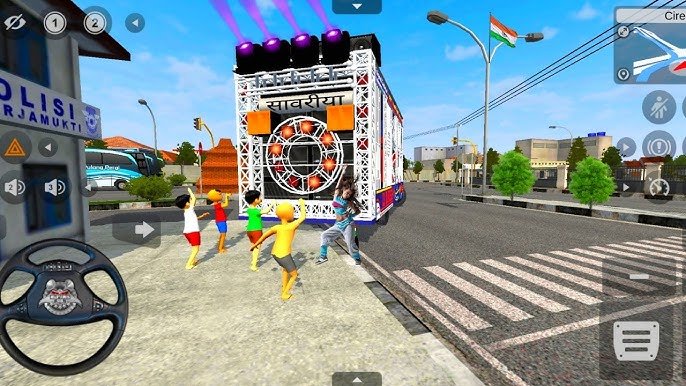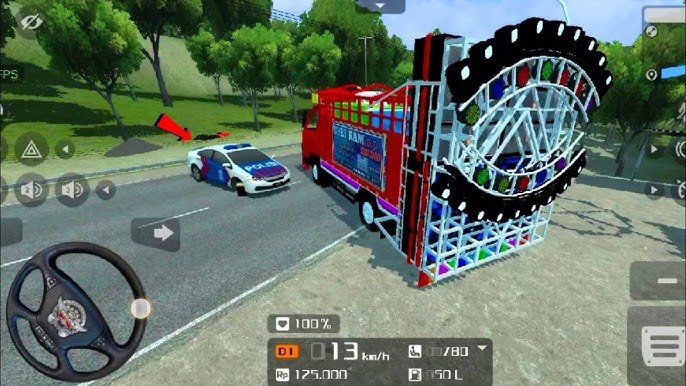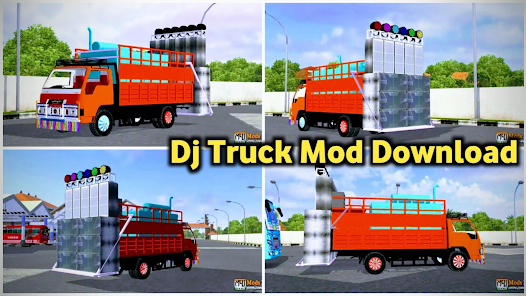
In the vibrant intersection of music and gaming, DJ games stand out as an innovative and thrilling genre that blends rhythm, creativity, and virtual entertainment. These games have captured the attention of both music lovers and gamers, offering a unique experience where players can step into the shoes of a DJ, mixing tracks and mastering the art of sound manipulation. With their ability to simulate the DJ experience, DJ games have become a sensation in gaming culture, creating a space where people can learn, play, and immerse themselves in music in exciting new ways.
This article explores the concept of DJ games, their evolution, the different types of DJ games, the benefits they offer, and their future in the gaming world.
What Are DJ Games?
DJ games are a genre of rhythm-based video games where players simulate the role of a DJ, creating mixes, transitioning between tracks, and adding effects to music. These games typically involve manipulating virtual DJ equipment, such as turntables, mixers, and sound effects, and matching the beat of music to perform a flawless mix. Some DJ games use specialized controllers or touchscreens, while others can be played using conventional game controllers or keyboards.
The essence of DJ games lies in their ability to immerse players in the world of music, rhythm, and mixing. Players often face challenges in matching beats, scratching records, or triggering effects at the right moments to create smooth transitions between tracks and keep the energy high. While some DJ games focus on highly technical simulations, others prioritize fun and accessibility, making them appealing to casual players as well as aspiring DJs.
Types of DJ Games
DJ games come in many forms, each offering a unique gaming experience. The primary types of DJ games are as follows:
1. Simulated DJ Turntable Games
These games provide players with a highly realistic experience by simulating the physical controls of a real DJ setup. In these games, players use turntables, faders, and crossfaders to manipulate tracks in real-time, just like a professional DJ would. The gameplay typically involves skills such as beatmatching, scratching, and applying effects to seamlessly transition between songs.
- Example: “DJ Hero” (2009)
One of the most iconic examples of a DJ game is “DJ Hero”. Released for PlayStation 2, PlayStation 3, and Xbox 360, this game allowed players to use a special DJ controller designed to mimic a real DJ setup. The controller featured a turntable and buttons to simulate scratching, mixing, and crossfading. The game’s soundtrack included an impressive collection of songs from genres like hip-hop, rock, and electronic dance music (EDM). Players could remix tracks from artists such as Jay-Z, Eminem, and Daft Punk, creating their own personalized versions of popular songs.
The immersive feel of “DJ Hero” was enhanced by the gameplay mechanics, which required players to hit various buttons in time with the music’s rhythm while adjusting the tempo and adding effects. This was one of the first DJ games to receive widespread commercial success, thanks to its innovative use of the turntable controller and its appeal to both music lovers and gamers.
| New Update Info | View Update |
| Latest Update | Link |
| Truck Games | Truck Games |
| Bus Games | All Bus Games |
2. Rhythm-Based DJ Games
Rhythm-based DJ games are a sub-genre where players use simplified controls to match musical cues, similar to rhythm games like “Guitar Hero” or “Dance Dance Revolution.” These games emphasize timing and synchronization with the beat, with the player pressing buttons or tapping the screen in time with the music.
- Example: “Beatmania” (1997)
“Beatmania” is one of the pioneers of rhythm-based DJ games. Developed by Konami, the game was first released in arcades and later adapted for various consoles. The game featured a controller that combined a turntable with several buttons. Players needed to press the corresponding buttons or turn the dial to match the notes that appeared on the screen. The gameplay involved remixing songs and scratching records while hitting the right notes at the right time. This innovative game was instrumental in popularizing rhythm games and laid the foundation for future DJ-themed titles.
While “Beatmania” was more of a rhythm game than a true DJ simulator, it introduced many gamers to the idea of combining turntablism with interactive gameplay. The game’s success led to several sequels and adaptations, further cementing rhythm-based DJ games as a popular genre.
3. Mobile DJ Games
The rise of smartphones and tablets has opened up new possibilities for DJ gaming. Mobile DJ games are often more casual and accessible, but still capture the core mechanics of mixing and rhythm. These games typically have simplified controls, allowing players to easily drag and drop elements or swipe the screen to create their own mixes.
- Example: “Edjing Mix” (2017)
“Edjing Mix” is a mobile DJ app that gives users the experience of mixing songs from their phone’s music library or streaming services like Spotify. The app is designed to simulate real DJ equipment, offering a range of effects, beats, and samples that users can manipulate in real-time. While “Edjing Mix” is more of a music mixing tool than a traditional game, it offers interactive elements that make it feel like a game, especially when trying to create seamless mixes or follow a rhythm challenge.
Mobile DJ games like “Edjing Mix” provide an accessible and fun experience for casual players who want to try their hand at DJing without the need for expensive equipment or advanced technical knowledge. These games are perfect for anyone looking to experiment with music creation on the go.
4. DJ Simulator Games
DJ simulator games offer a more realistic and complex experience, aiming to replicate the process of DJing as closely as possible. These games usually come with an array of virtual DJ equipment, such as turntables, mixers, and audio effects, allowing players to create their own mixes, scratch records, and manipulate sound in various ways.
- Example: “Virtual DJ” (2003)
“Virtual DJ” is one of the most widely used DJ software applications and has also been embraced as a simulator game by many aspiring DJs. The software allows users to mix and scratch songs using a digital interface that simulates a professional DJ setup. While it’s designed primarily as a tool for real-life DJs, it also serves as a game for players looking to learn about music production and mixing in a virtual environment.
“Virtual DJ” includes features such as auto-mixing, sound effects, loops, and real-time beatmatching, which provide an in-depth DJing experience. While it doesn’t have a specific game mode, its gamified aspects—such as the challenge of crafting perfect mixes—make it engaging for gamers and music enthusiasts alike.
The Benefits of Playing DJ Games
Playing DJ games offers numerous advantages, whether you’re a music lover, aspiring DJ, or casual gamer. These benefits extend far beyond the entertainment factor, offering valuable lessons in music and gaming mechanics.
1. Developing Rhythm and Timing Skills
DJ games are perfect for developing timing, rhythm, and coordination. Players must match the beats and cues presented in the game, which helps improve their sense of rhythm. Whether it’s tapping buttons in time with the beat or adjusting tempo on turntables, these games require precision and quick reflexes, helping players hone their timing skills.
2. Boosting Creativity and Music Production Knowledge
For those with an interest in music production, DJ games can be an excellent tool for learning the basics of remixing and track manipulation. Players experiment with mixing songs, adding effects, and creating unique sounds. These elements introduce players to key music production concepts, such as beatmatching, loops, and sound layering, which are essential skills for budding DJs and music producers.
3. Learning the Basics of DJing
While DJ games cannot replace formal DJ training, they serve as an accessible starting point for anyone interested in learning how to DJ. Many games offer tutorials and challenges that teach basic DJing skills, such as how to handle turntables, create smooth transitions, and understand the importance of tempo and rhythm. For those considering a career in DJing, these games can provide an introduction to the craft.
4. Encouraging Interaction with Music in New Ways
DJ games open up new ways to interact with music. Players can mix songs they already love, explore new genres, and experiment with sound design. Whether it’s blending EDM with hip-hop or creating mashups of their favorite tracks, DJ games allow players to discover their own creative potential and enjoy the process of making music.
5. Fun and Social Interaction
Beyond the educational benefits, DJ games are also about fun. They offer a social experience where players can collaborate or compete with others, share their mixes online, or even participate in virtual DJ competitions. Some DJ games allow users to host live streams or upload their mixes for others to hear, fostering a sense of community among players.
The Future of DJ Games
The future of DJ games looks incredibly promising. As technology continues to evolve, new developments like virtual reality (VR), augmented reality (AR), and artificial intelligence (AI) are expected to enhance the DJ gaming experience.
Virtual Reality (VR) DJ Games
With VR technology, the experience of DJing in a game could become even more immersive. Imagine stepping into a fully interactive virtual DJ booth where you can mix and scratch records using motion controllers. VR DJ games would offer a more realistic environment, allowing players to manipulate sound in a way that feels like they’re standing in front of a real crowd.
Artificial Intelligence (AI) in DJ Games
AI could play a significant role in shaping the future of DJ games. AI could assist players in creating mixes by suggesting tracks or adjusting the tempo in real-time. Additionally, AI-driven games could adapt to the player’s skill level, providing personalized challenges that help them grow as virtual DJs.
Social and Competitive DJ Gaming
As online platforms like Twitch and YouTube continue to grow, DJ games could become more social and competitive. Players may have the opportunity to compete in global DJ battles, livestream their mixes, and interact with fans in real-time, opening up new possibilities for social engagement and virtual performances.
Conclusion
DJ games have emerged as a vibrant and engaging genre that brings music, rhythm, and gaming together in new and exciting ways. Whether you’re an aspiring DJ, a music lover, or a casual gamer, these games provide an opportunity to explore the world of DJing from the comfort of your own home. With their mix of creativity, timing, and rhythm, DJ games offer more than just entertainment—they also serve as a fun, educational tool for anyone looking to learn about the art of music mixing and production.
As technology continues to advance, the possibilities for DJ games are boundless. Virtual reality, AI, and social platforms will push the boundaries of this genre even further, offering players an ever-more immersive and interactive experience. In the coming years, DJ games will undoubtedly continue to captivate music enthusiasts and gamers alike, shaping the future of music gaming and digital creativity.


